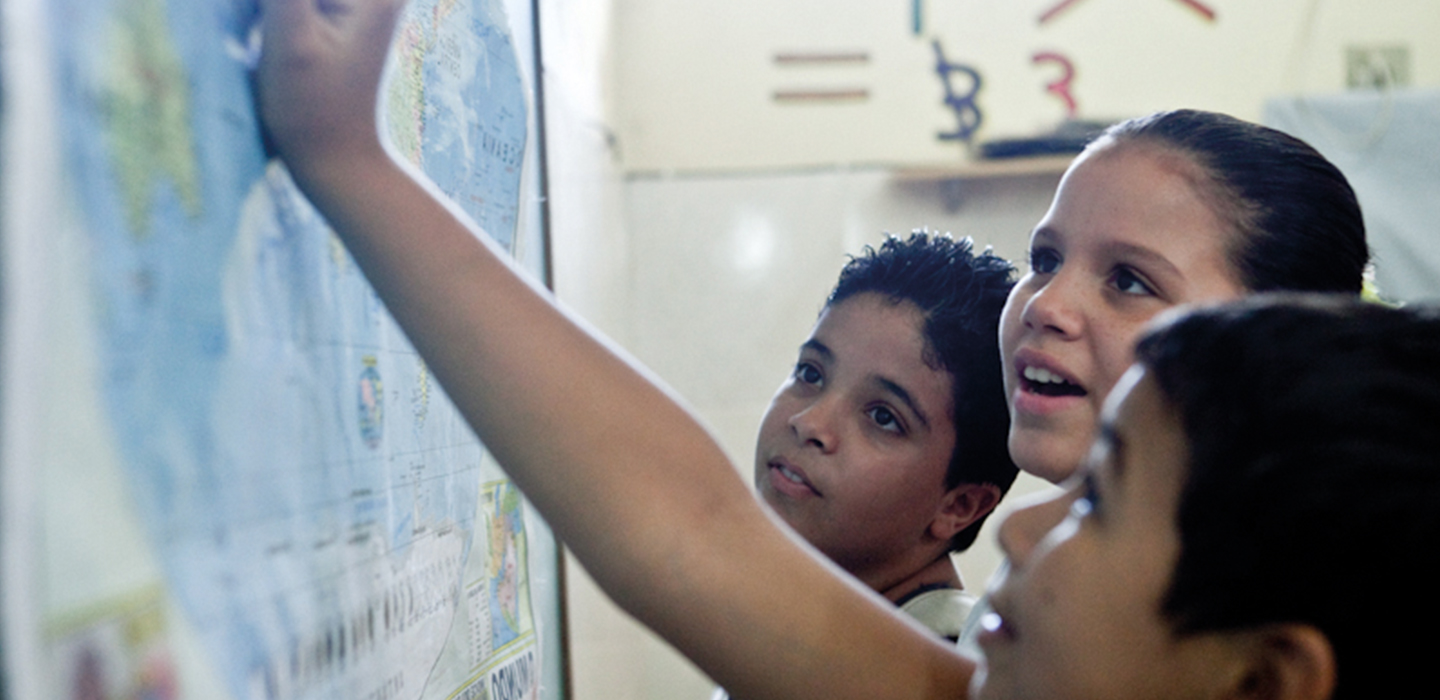Photo Essay
Young Women in Ghana Learn New Trades and Explore New Possibilities
By Francine de Boer, UK Development Manager
Recently, I visited two of our grantee partners in Tamale, in northern Ghana: Urban Agriculture Network (Urbanet) and Songtaba. It was incredible to see first-hand how young people are gaining marketable skills—and self-confidence along the way.
Urbanet is a network of small-scale farmer organisations that promotes sustainable agronomic practices as a means of ensuring food security, sustainable and productive livelihoods, and healthy environments. Urbanet’s Youth Empowerment and Skills Development Programme trains youth in the production and processing of shea butter, soymilk, and rice, as well as in animal rearing. It provides them with support to set up their own businesses or form cooperatives to reach wider markets.
Songtaba works to advance the rights of women and girls, partnering with a range of formal and informal groups, government agencies, and communities. They help strengthen young women’s leadership skills and expand livelihood opportunities for them. EMpower supports their training programme in weaving, enabling young women to learn this skill, contribute to their family’s income, and become self-reliant.
Here are just a few of the photos from my trip and a glimpse into the inspiring work our partners are doing, and the ways young people are building brighter futures.
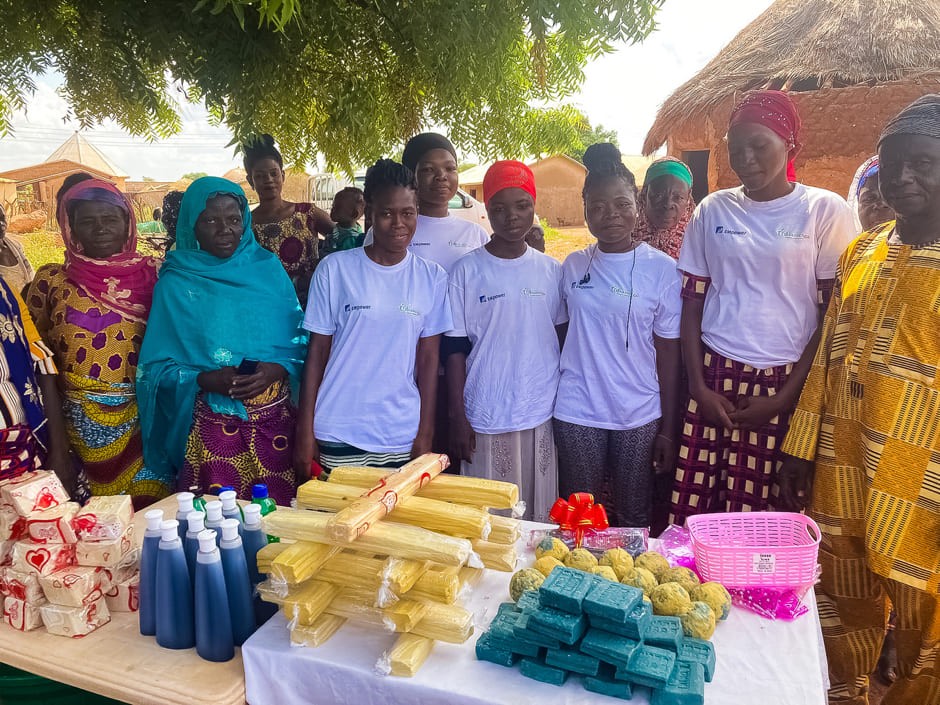
I visited a group of young women learning how to make soap and shea butter products, as well as how to market their products. They told me how the programme not only has had an impact on themselves, but also on their community. Before, people had to travel into town to get soap, now they can buy it right there in their community—boosting the local economy and giving the young women a level of financial independence.
I met Hawa, who is a real role model for other young women in her community. “When I was in school, I was in a class of 55, only 4 of whom were girls,” she said. “I thought certain things were for boys and certain things were for girls. I now know that doesn’t have to be the case.”
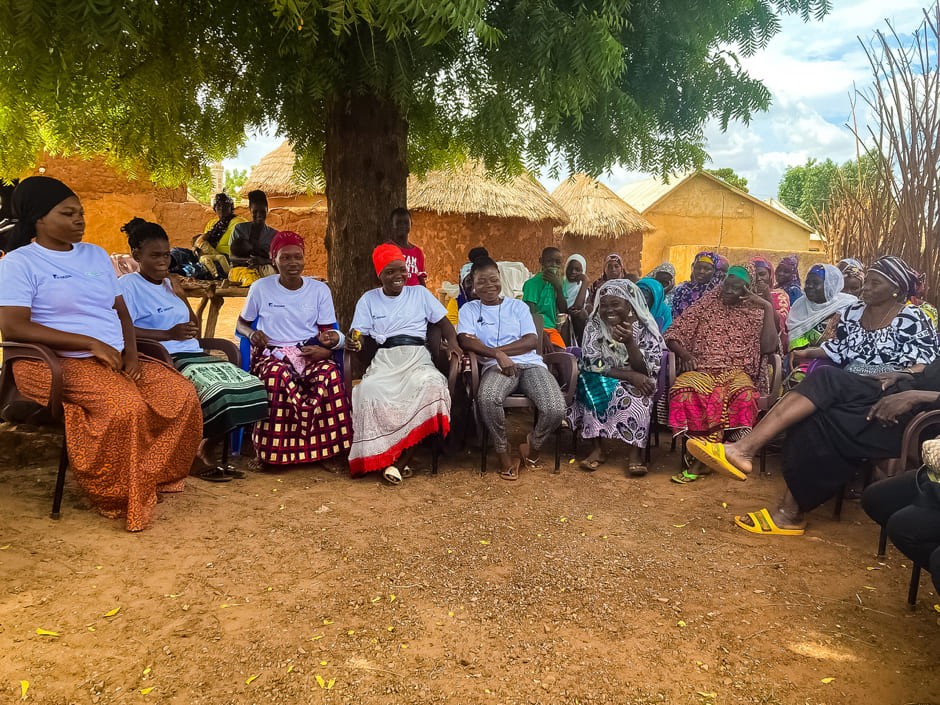
“We work as a collective and split the proceeds. This means we have to work together and have all learned how to work as a team,” said one participant of Urbanet’s programme.
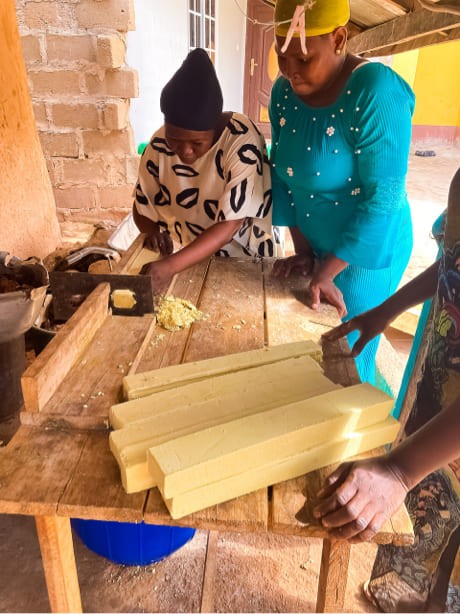
“I’ve always made shea butter, it’s something we do as a family, generation on generation,” said the woman on the left featured here. “But we relied on just a few customers who would not always pay. Through Urbanet’s programme, we learned how to make soap out of the butter, meaning we now have a special skill others in the community don’t have. Through word of mouth we have built a clientele in the community. Earning more money has made me less dependent on my husband, and I’m now able to provide my baby and myself with basic necessities.”
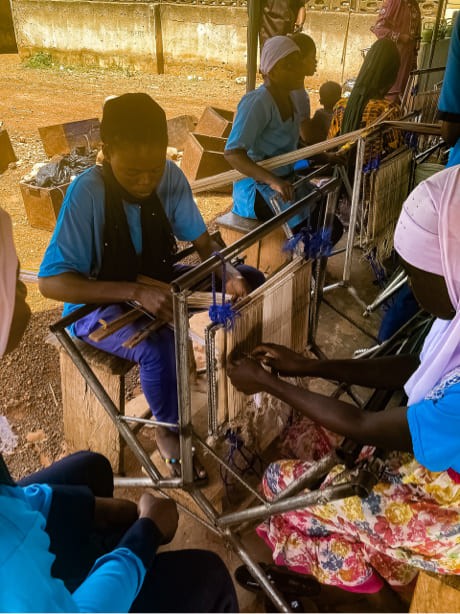
At Songtaba, young women practice weaving at the training centre that EMpower supports.
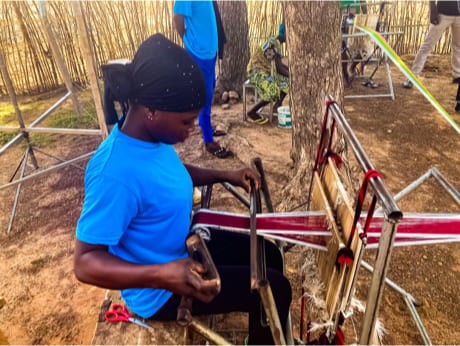
During my visit, I met several young women who have graduated from the programme and now train others to set up their own weaving businesses—paving the way forward and helping to build thriving communities.
Photo Credit: Francine de Boer
Connect with EMpower
Stay up-to-date on the latest EMpower news, highlights from our grantee partners, upcoming events, and more.
Make a Difference with EMpower
Our Board Directors and the Leadership Council underwrite all of our Management, General and Fundraising expenses, so 100% of your donation goes directly to empowering marginalised young people.

